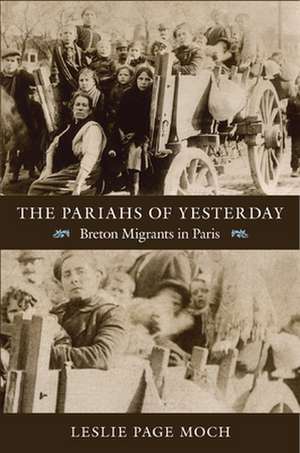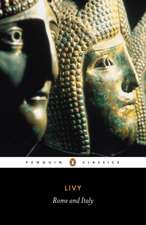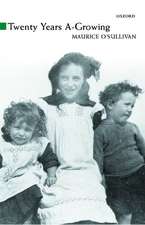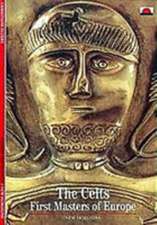The Pariahs of Yesterday – Breton Migrants in Paris
Autor Leslie Page Mochen Limba Engleză Paperback – 29 mar 2012
Preț: 260.19 lei
Nou
Puncte Express: 390
Preț estimativ în valută:
49.79€ • 52.12$ • 41.20£
49.79€ • 52.12$ • 41.20£
Carte tipărită la comandă
Livrare economică 05-19 aprilie
Preluare comenzi: 021 569.72.76
Specificații
ISBN-13: 9780822351832
ISBN-10: 0822351838
Pagini: 272
Ilustrații: 5 illustrations, 3 maps
Dimensiuni: 155 x 234 x 17 mm
Greutate: 0.36 kg
Editura: MD – Duke University Press
ISBN-10: 0822351838
Pagini: 272
Ilustrații: 5 illustrations, 3 maps
Dimensiuni: 155 x 234 x 17 mm
Greutate: 0.36 kg
Editura: MD – Duke University Press
Recenzii
Leslie Page Moch has given us a more vivid and fully analyzed picture of Breton migration to Paris during the Third French Republic than we have had before. She moves deftly across the fields of demographic, urban, and cultural history to show how young women and men from rural villages in western France became Parisians in their own way, despite the stubborn persistence of prejudice against them. The Pariahs of Yesterday demonstrates that the history of Frances internal migration from the provinces has much to teach us about the dynamics of the countrys more recent controversies over immigration and cultural diversity. Herrick Chapman, co-editor of Race in France: Interdisciplinary Perspectives on the Politics of DifferenceThe Pariahs of Yesterday will be the definitive work on Bretons in Paris. Leslie Page Moch is one of the foremost historians of European migration and here, through the eyes of contemporary observers and the microscope of marriage registries, Moch traces a longue durée history of an important component of the Parisian population from the late nineteenth century to the present. Nancy L. Green, author of Ready-to-Wear and Ready-to-Work: A Century of Industry and Immigrants in Paris and New York
Cuprins
Descriere
This is a book about migration. Specifically it looks at the surge of Bretons who left their homes in Western France in the latter half of the nineteenth century to live and work in Paris. Portrayed as backward, ignorant peasants they found no welcome until after the second world war, when they were replaced by Eastern European and African migrants who in turn were denigrated as unworthy and unwelcome. This pattern of disdain and eventual acceptance of migrants is applicable to many countries and many times and Moch positions her work within immigration theory, connecting migration studies to theories about state projects of assimilation and about cultures of inclusion and exclusion.














